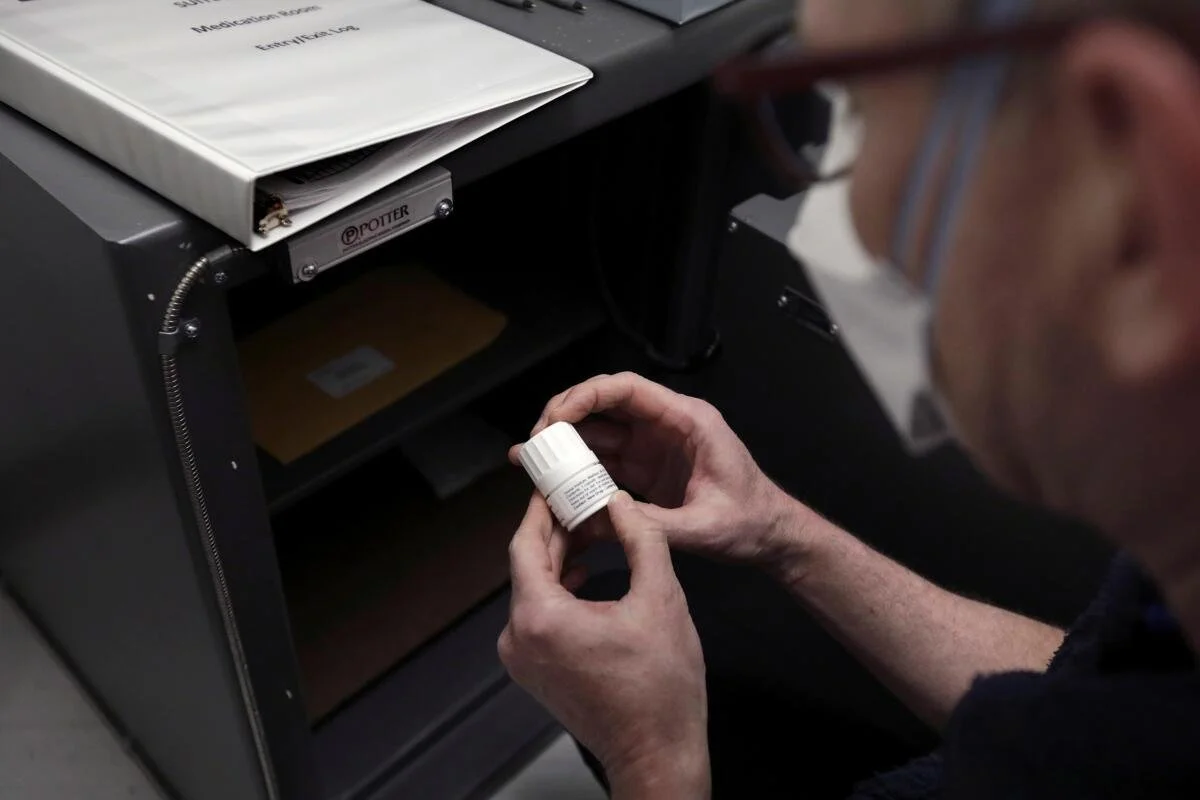Psychedelic Science Enters a New Era with Wave of Grant Funding
Are psychedelic research studies pushing beyond therapeutic uses? Recent research grants are opening new frontiers in this fascinating field. By funding innovative projects, these grants are exploring the potential of psychedelics in areas such as creativity, cognitive enhancement, and personal growth.
Let's dive into how these studies are shaping a new understanding of psychedelics beyond traditional medicine.
What Are Clinical Trials on Psychedelics Revealing?
Clinical trials on psychedelics are uncovering groundbreaking insights into their potential beyond traditional therapeutic uses. Researchers are finding that these substances can significantly impact mental health conditions like depression, PTSD, and anxiety.
These studies are not only revealing the efficacy of psychedelics in treatment but are also paving the way for future exploration in various fields.
In current clinical trials, scientists are rigorously testing the effects of substances like psilocybin and MDMA. Early results show promising improvements in patients who have not responded to conventional treatments.
For example, psilocybin has demonstrated remarkable effectiveness in reducing symptoms of depression, sometimes with lasting effects after just a few sessions.
These findings have significant implications for the future of mental health treatment. They suggest that psychedelics could become a viable alternative or complement to existing therapies, offering hope to many who struggle with treatment-resistant conditions.
Moreover, the success of these trials is encouraging further research into other potential benefits of psychedelics, such as enhancing creativity and cognitive flexibility.
How Is Psychedelic Science Research Expanding?
Psychedelic science research is rapidly growing, thanks to new research grants and funding. These investments support innovative projects exploring the therapeutic and broader applications of psychedelics.
Scientists are investigating the effects of substances like psilocybin and MDMA on mental health conditions such as depression, PTSD, and anxiety. Beyond therapy, studies are examining how psychedelics can enhance creativity, cognitive flexibility, and personal growth.
With ongoing studies and innovative projects, psychedelic research promises to revolutionize our understanding and use of these powerful substances, extending their benefits beyond traditional therapeutic boundaries.
What Do Studies on Psilocybin Effects Tell Us?
Studies on psilocybin's effects reveal groundbreaking insights into its potential benefits. Researchers have focused on understanding how psilocybin, the active compound in magic mushrooms, impacts the brain and behavior.
This research is crucial for exploring both therapeutic and non-therapeutic uses.
Cognitive, Emotional, and Behavioral Effects
Psilocybin has been shown to enhance cognitive flexibility, creativity, and emotional well-being. Users often report profound changes in perception and mood, including increased empathy and reduced anxiety.
These effects are being studied in clinical trials on psychedelics to evaluate their efficacy in treating conditions like depression and PTSD.
Long-Term Impact and Potential Uses
Long-term studies suggest that psilocybin can lead to lasting positive changes in personality traits, such as openness and emotional stability. These findings indicate potential uses beyond therapy, such as enhancing personal growth and creativity.
As psychedelic science research expands, the full spectrum of psilocybin's effects continues to be unveiled, promising new applications in mental health and beyond.
Why Are Researchers Interested in Non-Therapeutic Uses of Psychedelics?
Researchers are increasingly interested in how psychedelics can boost creativity and enhance cognitive functions. Studies show that psilocybin can lead to heightened creativity, problem-solving abilities, and flexible thinking, opening new possibilities in fields such as art, science, and education.
Personal Growth and Self-Discovery
Psychedelics are also being studied for their potential to foster personal growth and self-discovery. Many users report profound insights and emotional breakthroughs during their experiences, which can lead to lasting positive changes in their lives.
This aspect of psychedelic research is helping people explore and understand themselves more deeply.
Societal and Cultural Implications
The societal and cultural implications of psychedelic use are vast. As research expands, it could shift how we view mental health, creativity, and human potential.
Psychedelic science research is challenging traditional boundaries and opening new conversations about the role of these substances in society, potentially influencing cultural norms and policies.
Conclusion: What Does the Future Hold for Psychedelic Research?
Psychedelic research is rapidly evolving, revealing both therapeutic and non-therapeutic benefits. Key points include breakthroughs in treating mental health conditions and exploring creativity and personal growth enhancements.
Future trends indicate broader applications, from cognitive enhancement to societal impact. As research continues, potential breakthroughs could revolutionize our understanding and use of psychedelics, promising new, innovative approaches to mental health and human potential.
The evolving landscape of psychedelic science holds immense promise, paving the way for a deeper exploration of these powerful substances and their diverse applications.
FAQs
1. What are the main therapeutic uses of psychedelics in current research?
Psychedelics like psilocybin and MDMA are primarily being studied for their effectiveness in treating mental health conditions such as depression, PTSD, and anxiety. Clinical trials have shown promising results, particularly for patients who have not responded to traditional treatments.
2. How do psychedelics enhance creativity and cognitive flexibility?
Studies suggest that psychedelics can temporarily alter brain function, leading to increased connectivity and communication between different brain regions. This can enhance creativity, improve problem-solving abilities, and promote flexible thinking.
3. What are the potential long-term benefits of psilocybin use?
Long-term studies indicate that psilocybin can lead to lasting positive changes in personality traits, such as increased openness and emotional stability. These changes can contribute to personal growth, improved well-being, and a greater sense of empathy.
4. Are there any risks associated with psychedelic research?
While psychedelics show promise, there are risks, including potential psychological distress or adverse reactions. Research must be conducted in controlled clinical settings to ensure safety and accurately monitor effects.

